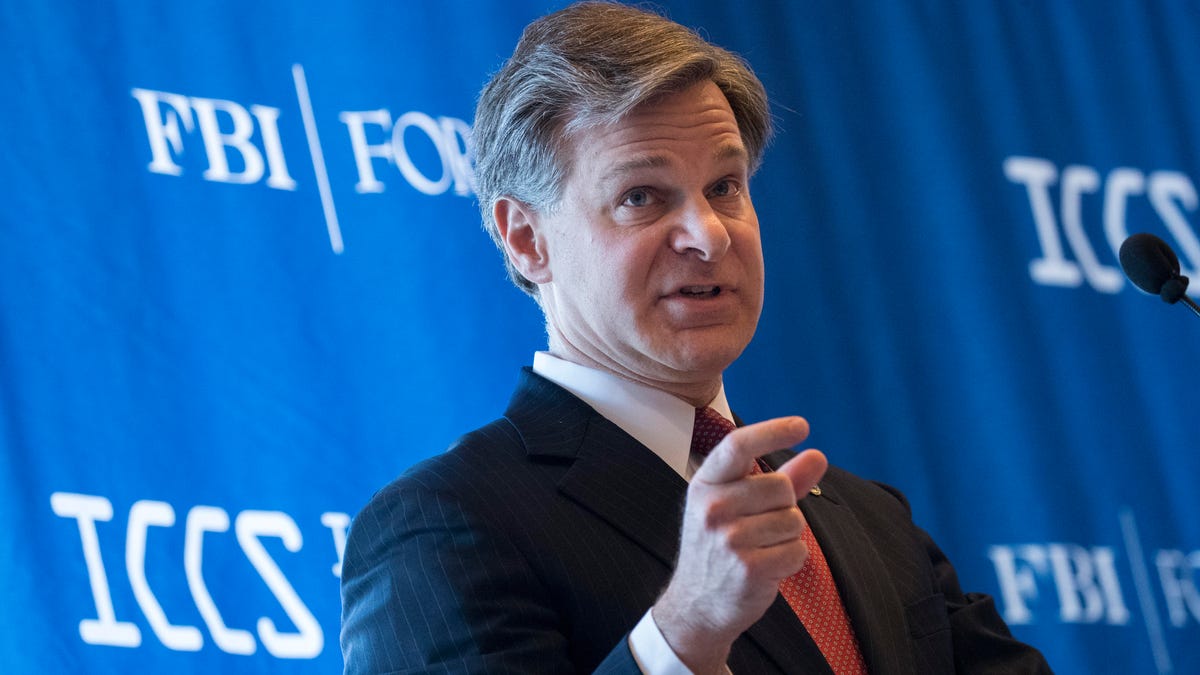Encryption an 'urgent public safety issue,' FBI chief says
The bureau's director says his agency was unable to access the contents of nearly 7,800 devices last year, despite legal authority.

FBI Director Christopher Wray speaks during the International Conference on Cyber Security at Fordham University on Tuesday.
Law enforcement's inability to access data on encrypted electronics devices has lead to an "urgent public safety issue," FBI Director Christopher Wray said Tuesday.
Wray said during a speech at a cybersecurity conference in New York that the FBI was unable to access the contents of nearly 7,800 devices during the agency's fiscal year, despite having technical tools and proper legal authority. Each of those devices was connected to a suspected criminal event or threat, he said.
"While the FBI and law enforcement happen to be on the front lines of this problem, this is an urgent public safety issue for all of us," Wray said. "Because as horrifying as 7,800 in one year sounds, it's going to be a lot worse in just a couple of years if we don't find a responsible solution."
Wray's comments seemed designed to reignite a debate over privacy and security that began last year when Apple refused to grant the FBI access to the contents of an encrypted iPhone belonging to a shooter in a terror attack in San Bernardino, California. The iPhone's encryption technology scrambles data and requires a passcode before allowing access.
If investigators entered the wrong passcode 10 times, the iPhone's data would be wiped, or lost forever. The FBI eventually found success after later engaging the help of an unidentified third party, but that did little to quell the debate over encryption.
Wray's comments at the International Conference on Cyber Security focused on what the FBI calls the Going Dark problem, where law enforcement officials have the legal authority but not the technical ability to access encrypted communications.
Tech firms and privacy advocates argue that encryption is essential to secure personal information and communications. The government and law enforcement officials counter that encryption hurts their ability to investigate criminal and terrorist activity.
"We face an enormous and increasing number of cases that rely heavily, if not exclusively, on electronic evidence," Wray told conference attendees. "We also face a situation where we're increasingly unable to access that evidence, despite lawful authority to do so."
Wray pressed tech companies to respond to court orders in a way that respects the law and strong cybersecurity.
"I recognize this entails varying degrees of innovation by the industry to ensure lawful access is available," he said. "But I just don't buy the claim that it's impossible."
Tech companies have opposed legislation requiring them to provide "back doors" into devices, saying it would force them to deliberately weaken the security of their products for all users.
iHate: CNET looks at how intolerance is taking over the internet.
Solving for XX: The industry seeks to overcome outdated ideas about "women in tech."

